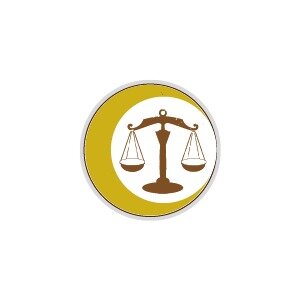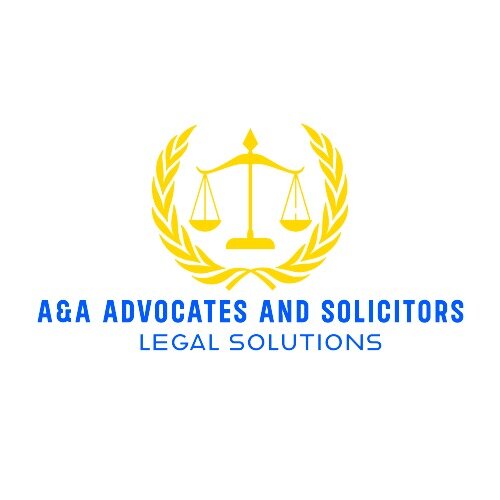Best Asylum Lawyers in Ghana
Share your needs with us, get contacted by law firms.
Free. Takes 2 min.
Or refine your search by selecting a city:
List of the best lawyers in Ghana
About Asylum Law in Ghana
Asylum law in Ghana is governed by both national legislation and international conventions to which Ghana is a signatory. The primary purpose of these laws is to provide protection to individuals who have fled persecution in their home countries. Ghana adheres to the 1951 United Nations Convention Relating to the Status of Refugees and its 1967 Protocol. These frameworks ensure that asylum seekers who fear persecution due to race, religion, nationality, social group, or political opinion can seek refuge in Ghana. The Ghana Refugee Board, established under the Refugee Law, 1992 (PNDCL 305D), is the main body responsible for the management and determination of asylum claims in Ghana.
Why You May Need a Lawyer
Asylum processes can be complex and often require professional legal advice. Common situations where legal help may be necessary include:
- Understanding eligibility requirements for asylum status.
- Completing and submitting asylum application forms.
- Representing asylum seekers in interviews or hearings before the Ghana Refugee Board.
- Navigating appeals if an asylum application is denied.
- Ensuring compliance with Ghana's legal standards and asylum-related regulations.
- Protection against potential detention or deportation.
Local Laws Overview
Ghana's asylum laws are primarily encapsulated in the Refugee Law, 1992 (PNDCL 305D), which outlines the procedures for seeking asylum and the rights and obligations of refugees. Key aspects include:
- The definition of who qualifies as a refugee.
- The establishment of the Ghana Refugee Board and determination procedures for asylum claims.
- The rights to work, education, and public relief for recognized refugees.
- The obligation to respect local laws and national security standards.
- Prohibition against the expulsion or return ("refoulement") of a refugee to territories where their life or freedom could be threatened.
Frequently Asked Questions
Who can apply for asylum in Ghana?
Anyone who has fled their country of origin due to fear of persecution based on race, religion, nationality, membership in a particular social group, or political opinion may apply for asylum in Ghana.
Where do I submit my asylum application?
Asylum applications should be submitted to the Ghana Refugee Board, which has the authority to assess and determine the merits of the case.
How long does it take to process an asylum application?
The processing time can vary, but applicants should expect several months for a decision. Delays may occur due to case complexities or high volumes of applications.
Can I work while my asylum application is pending?
Generally, asylum seekers may not have immediate rights to work. However, legal advice is recommended to explore potential permissions for employment.
What happens if my asylum application is denied?
If denied, applicants can appeal the decision within a specified period. It's strongly recommended to seek legal assistance for guidance on submitting an appeal.
Can family members apply for asylum with me?
Yes, immediate family members (such as spouses and children) can be included in your asylum application as dependents.
Are there any fees associated with the asylum process?
No, the application for asylum in Ghana is free of charge. However, legal services and representation may incur costs.
What rights do recognized refugees have in Ghana?
Recognized refugees in Ghana have the right to work, access education, and receive public relief. They must, however, adhere to local laws.
Is it possible to be detained while applying for asylum?
In some cases, asylum seekers may face detention, particularly if they enter the country irregularly. Legal representation is crucial in such situations.
Can I travel outside Ghana if I am granted asylum?
As a recognized refugee, travel outside Ghana requires approval from the Ghana Refugee Board and acquisition of appropriate travel documents.
Additional Resources
For further assistance, the following resources may be helpful:
- The Ghana Refugee Board: Responsible for processing asylum claims.
- Legal Aid Services: Offers legal assistance to asylum seekers.
- United Nations High Commissioner for Refugees (UNHCR): Provides support and guidance on refugee matters.
- Local NGOs: Various non-governmental organizations offer support services for asylum seekers and refugees.
Next Steps
If you need legal assistance for asylum matters in Ghana, consider taking the following steps:
- Contact the Ghana Refugee Board for information on application procedures.
- Seek advice from legal practitioners specializing in immigration or asylum law.
- Reach out to organizations such as UNHCR or local NGOs for support services and guidance.
- Prepare necessary documentation to support your asylum application.
- Attend interviews and/or hearings with the Ghana Refugee Board, accompanied by legal representation if possible.
Lawzana helps you find the best lawyers and law firms in Ghana through a curated and pre-screened list of qualified legal professionals. Our platform offers rankings and detailed profiles of attorneys and law firms, allowing you to compare based on practice areas, including Asylum, experience, and client feedback.
Each profile includes a description of the firm's areas of practice, client reviews, team members and partners, year of establishment, spoken languages, office locations, contact information, social media presence, and any published articles or resources. Most firms on our platform speak English and are experienced in both local and international legal matters.
Get a quote from top-rated law firms in Ghana — quickly, securely, and without unnecessary hassle.
Disclaimer:
The information provided on this page is for general informational purposes only and does not constitute legal advice. While we strive to ensure the accuracy and relevance of the content, legal information may change over time, and interpretations of the law can vary. You should always consult with a qualified legal professional for advice specific to your situation.
We disclaim all liability for actions taken or not taken based on the content of this page. If you believe any information is incorrect or outdated, please contact us, and we will review and update it where appropriate.
Browse asylum law firms by city in Ghana
Refine your search by selecting a city.

















